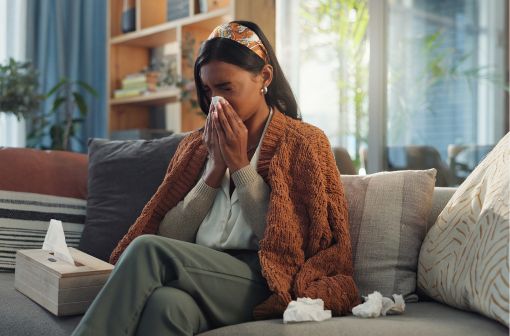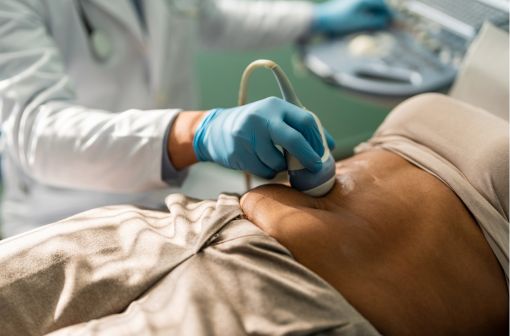“When you’re thinking about investing in your health longer term, it’s also about investing in the relationship you have with your healthcare team.” – Dr Jeannie Yoo.
Key points
- As you get older, be proactive in getting regular check-ups with your GP.
- Actively engaging with your health means you can stay fitter and healthier for longer.
- It's essential to have a good working relationship with your GP and healthcare team.
You know the saying “life gets better with age”? Researchers at Flinders University have discovered one reason behind the adage. Their study showed that being more mindful as we get older can help us get through age-related challenges and improve our overall wellbeing.
But what does being mindful mean and how do we introduce this awareness into our day-to-day schedule?
Dr Jeannie Yoo, Clinical Director at Remedy Healthcare, Australian Unity’s health partner, explains, “There are certain groups of health conditions that become more common as you get older.” She lists heart disease, stroke, certain cancers and osteoporosis as examples of health issues anyone over the age of 50 needs to be aware of.
And this is where actively engaging with your health makes all the difference: rather than feeling overwhelmed, you can acknowledge the facts and consciously take action by seeing your doctor to have regular health checks. Not only will this help you stay fitter and healthier for longer, but if your doctor finds anything, you’ll be able to address the issue early too.
As Jeannie says, “There’s plenty that can be done now to make a difference to your health.”

Start here: with your GP
Before you book all the tests recommended for over-50s, chat to your GP first. “It’s not necessarily the case that the more tests you do, the better. You only want to have a test if there’s a good reason to do so,” explains Jeannie. “Your GP can advise you on how often you need the tests.”
For example, if you have diabetes, you might need to have a blood test every six months, but that won’t be the same for someone with an average risk of developing type 2 diabetes.
That’s why Jeannie says it’s essential to have a good relationship with a GP who gets to know you over time. “When you’re thinking about investing in your health longer term, it’s also about investing in the relationship you have with your healthcare team. This can improve your health as well.”
So who else should be part of your core healthcare team? In addition to your GP, your dentist and optometrist will play key roles. An annual dental check-up can help to prevent tooth decay and gum disease, while an eye test every two years can help to identify age-related macular degeneration, which is the leading cause of severe vision impairment for those aged over 40.
Cardiovascular risk assessment
According to the Heart Foundation, cardiovascular disease is still the leading cause of death in Australia, despite being largely preventable. In the next five years, it’s estimated that 1.4 million adults are at a high risk of having a heart attack or stroke. One way to help avoid becoming one of those cases is to have a cardiovascular risk assessment with your GP every two years.
“As part of that check-up, your GP looks at the relevant risk factors to estimate your likelihood of having a major cardiovascular event, like a heart attack or a stroke,” says Jeannie. These risk factors include your age, sex, blood pressure, cholesterol levels and whether you’re diabetic.
“If your risk is higher, you might need more regular check-ups. You might also need to change your lifestyle, for example, by becoming active, having the right kind of diet and maintaining a healthy weight,” says Jeannie. “In some cases, you may need medication to help manage those risk factors.”
Cancer screenings
There are number of cancers that are regularly screened for once you reach 50, including breast cancer, cervical cancer, bowel cancer and skin cancer.
“For women, it’s recommended they have two-yearly mammograms for breast cancer,” says Jeannie. These screening tests have reduced the mortality rate from breast cancer by between 34 and 50 percent, according to the Cancer Council.
“In terms of cervical cancer, it’s now a five-yearly cervical screening test,” says Jeannie. This has replaced the two-yearly Pap test.
“For both men and women, the recommendation is for a two-yearly screening test for bowel cancer, which is done through faecal occult blood testing. This test looks for traces of blood in your bowel motions,” explains Jeannie. The National Bowel Cancer Screening Program sends out free tests to eligible Australians’ homes every two years, from the time you turn 50 until you’re 74. Call 1800 118 868 to organise one or chat to your GP.

Jeannie also points out that it’s important to be aware of the risk of skin cancer, as Australia has one of the highest rates of skin cancer in the world. Check your skin regularly for any non-healing sores, small lumps or new spots, freckles and moles that change colour and shape, and let your doctor know straight away if you notice anything.
Osteoporosis assessment
“It’s also important to focus on your bone health as you get older,” says Jeannie.
Anyone over the age of 50 may be at risk of osteoporosis if they smoke, drink a lot of alcohol or aren’t very active. A GP may recommend a bone-density scan if you or one of your parents have fractured a bone, if you have been prescribed steroid medication in the past, or if you have a medical conditions that may affect bone health.
Otherwise, “anyone with an average risk of osteoporosis is encouraged to see their GP every 12 months,” says Jeannie.
Are you starting to feel like there are too many checks to keep on top of? Don’t stress. Because, as Jeannie tells us, that’s where your GP comes in. “We all have busy lives and maintaining our health isn’t necessarily always at the top of our minds,” says Jeannie. “But, if you have a GP who you trust, then they can help you to remember to do that.”
Disclaimer: Information provided in this article is of a general nature. Australian Unity accepts no responsibility for the accuracy of any of the opinions, advice, representations or information contained in this publication. Readers should rely on their own advice and enquiries in making decisions affecting their own health, wellbeing or interest. Interviewee titles and employer are cited as at the time of interview and may have changed since publication.
Remedy Healthcare Group Pty Limited and Australian Unity Health Limited are wholly owned subsidiaries of Australian Unity Limited.
An Australian Unity health partner, Remedy Healthcare provides targeted, solution-oriented healthcare that is based on clinically proven techniques. For more than 10 years Remedy Healthcare has worked with more than 100,000 Australians – helping them to manage their health through caring, coaching, empowerment and support.


